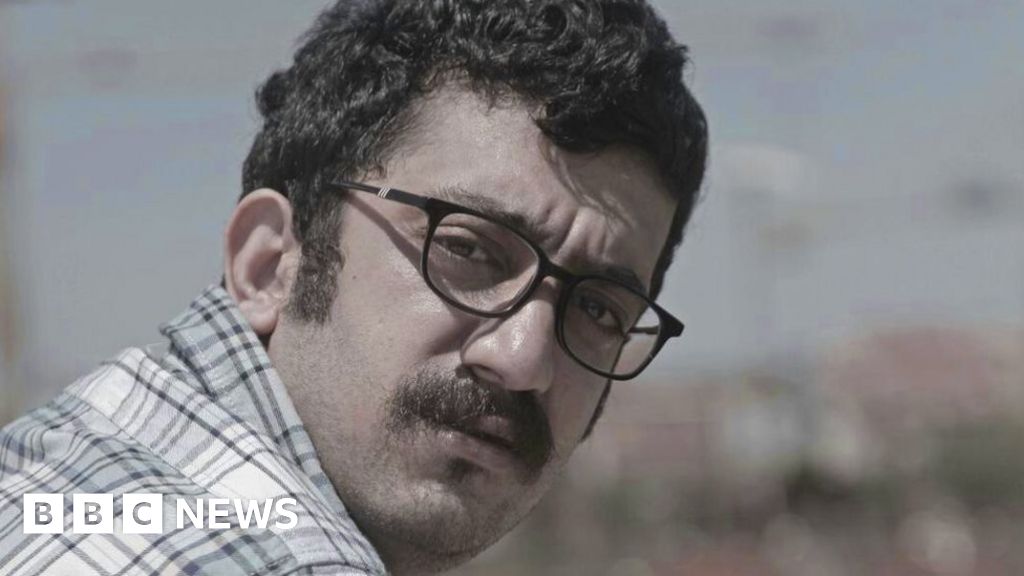Mehdi Rajabian could be arrested at any moment.
The 30-year-old has already been imprisoned twice for making music the Iranian authorities considered unacceptable.
The first time, he was kept in solitary confinement for three months - but the second saw him jailed for six years and forbidden from engaging in musical activities forever.
Currently on probation, he's continued to make music in defiance of the regime's ban. The result is an album, Middle Eastern, that was released by Sony Music last year.
Recorded in secrecy, it features contributions from almost 100 artists in 12 countries, including Syria, Yemen, Jordan, Lebanon and Iraq. Many of the musicians faced similar persecution to Rajabian. One of the songs was recorded during an air strike, another by a fleeing refugee in a boat.
Each track is accompanied by a painting from Kurdish artist Zehra Doğan, who was herself imprisoned for nearly three years for making art that offended the Turkish government.
And yet, the message is one of peace and unity. Working together in isolation, these disparate artists have crafted an enthralling and moving portrait of the region's music.
"I feel like, in this period of time and history, Middle Eastern countries needed a project like this," Rajabian tells the BBC via a secure messaging app from his home in Sari, in the north of Iran.
"Middle Eastern inhabitants are all tormented by the same pain... but music is a common language we can use to convey our sufferings.
"This project is a 'no' to war, meaning any kind of war and human rights oppression."
Inspiration for the album arrived during Rajabian's second prison term, when he was forced to share a cell with Somalian pirates.
"They would sing me their folk music," recalls the musician, who still has some handwritten poetry from their leader, "one of the 10 most violent men in the world".
The experience taught him that music can't be suppressed, even when you lock up the musicians.
"That's why I wrote a project for freedom and peace in prison," he says.
Rajabian's ordeal began in 2013, when the Islamic Revolutionary Guard raided his office, shut down his recording studio and confiscated all his hard drives.
Back then, he was running a record label that championed female musicians, and was working on an album, The History of Iran Narrated By Setar, which he described as being about the "absurdity" of the Iran-Iraq war.
Accused of distributing "underground music, including many whose lyrics and messages were deemed offensive to the Iranian authorities or the country's religion," he was sent to prison. Rajabian says he spent 90 days in solitary confinement, blindfolded and unaware of his surroundings.
He was eventually released on bail but, in 2015, was arrested again - this time with his film-maker brother, Hossein Rajabian - and sentenced to six years in prison, after a three-minute trial.
In protest, the brothers went on hunger strike for 40 days. Rajabian says he lost 15kg and vomited blood. His cellmate, a human rights activist called Vahid Sayadi Nasiri, also took part in the hunger strike and tragically died.
Organisations such as Amnesty International and Freemuse fought for his release, supported by celebrities including Johnny Depp, Peter Gabriel and Ai Weiwei; and his sentence was eventually cut to three years in jail with a further three years on suspended sentence.
Yet he is still dealing with the repercussions of those experiences.
At one point, the musician was thought to have developed muscular dystrophy as a result of the interrogations he endured. Starvation has also damaged his ability to play the setar.



 Africana55 Radio
Africana55 Radio 

